Seeking: Alignment.
When the Empty-ish Nest Hits You with Some Unexpected Feelings.
Alignment is the word my therapist taught me.
A counter point to “balance” which is overused and feels elusive anyway. I mean who has balance? No one has balance, let’s be real. The word alignment came up because I was talking about how I was feeling more connected to myself and the world because of two things that seem obvious, but aren’t:
Our daughter Edie (19) came home from Munich to stay the summer before leaving for NYC to go to college.
Our daughter Lucy (20) came home from Salt Lake City in August to attend university and make money in Las Vegas.
I had the girls back in the house, one at a time. Having them back after being out of the house for a full year, made me see what I lost in their absence. I mean, I was prepared to launch them into the world, prepared to miss them, prepared for them to have their own lives outside of their childhood home, prepared to not hear from them for days and weeks as they manage their busy lives, prepared to ache for their return the way my mother and grandmother ached for mine.
But that’s not really what happened.
David and I spoke to both girls nearly everday on Facetime, and texted in group chats and sent dumb memes and care packages so much it felt like, in some ways, we spoke more with them gone, then when they were living with us, with their anti-social, teenage angst-ridden, locked bedroom doors. But last year, when Edie was in Munich and Lucy was in Salt Lake, I stopped cooking the way I had always cooked. Cooking and grocery shopping became a chore. I was putting corn dogs in the microwave for Desi and making burritos, with only rice, beans and cheese for Raffi. And for David, his longevity salads + protein formulas for every dinner.
What I realized is that for the last 20 years I had been cooking really for the older girls. And when they left the house, the thing that brought so much sanity and peace to my brain, was something I couldn’t really do anymore.
I missed it, even as I tried to pivot toward something else. I picked up the guitar again. I tried learning a language. I gave myself a list of books to read. But I missed my kitchen life. Also? It impacted how I wrote and how calm I felt after having written. The mechanics of moving around the kitchen cleared my mind of junk. I used my hands, turned down my brain, solved problems, took in the smells, tastes and textures of the cooking, felt inundated and altered by steam and gas range fire and a good char on a steak. I loved the quiet laboriousness of rolling out a sfoglia, or pasta dough, with a long wooden matarello.
My cooking is tactile. I don’t cotton to dump and stir cooking, insta pots or crock pots, even though they are life savers for many busy people (No shade if you use them. I get it!). Years ago, I bought a rice cooker because all the world has rice cookers and they make perfet rice every time with no effort. But then my rice ccoker broke down, and I realizd over the years, I had kinda forgotten how to make a perfect pot of rice. It came back to me. But I didn’t like that the machine had disconnected me from the process of making, and the security of knowing I could provide for myself. When I make fresh pasta, I try to not use machines with motors, no fancy extruders. Just for the practice, to feel close to the cooking itself.
I cook for the cooking. I’d rather cook than eat. I know that’s weird. I don’t care.
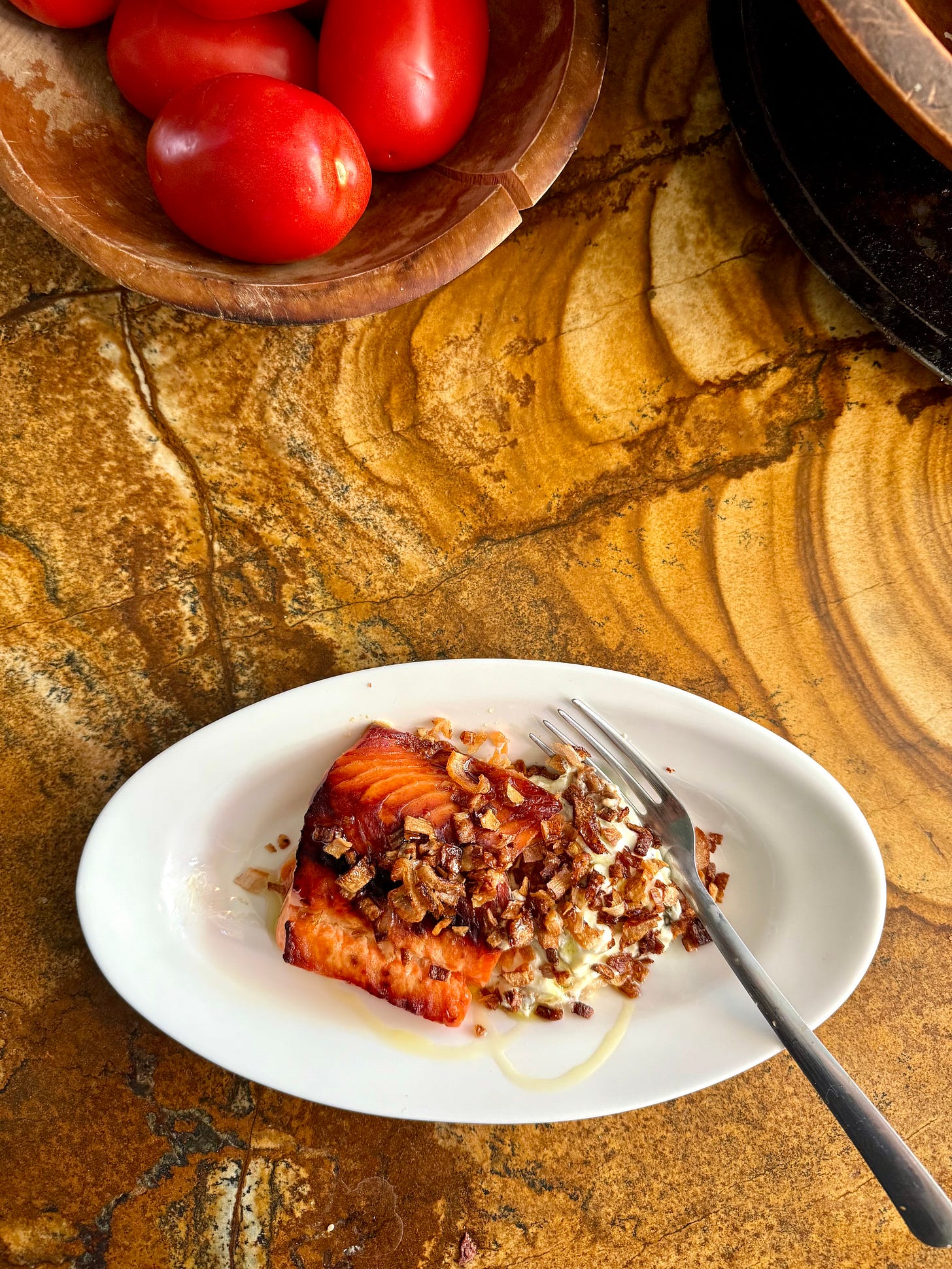
The year the older girls were gone, I was not in alignment.
Some of you who have been reading me for a while know that I spent a good chunk of my writing career as a food writer, and as a professional cook. I’ve been nominated twice for James Beard Awards and won once. I wrote a book The Meth Lunches about how food illuminates comfort, but also crisis.
Before that, cooking was almost always about Lucy and Edie. I had a fairly successful food blog that I started back in the aughts, wrote for food publications, was written about in food publications, met food people, lived life in a food policy issues-centered world.
We were cooking all the time, really.
Cooking with my kids and their schools was a huge part of my life, and I’m not sure I realized how much. Looking back, I see the cooking program we did in Lucy’ pre-k class where we made everything from donuts to dumplings and ultimately cooked a full scratch lunch for their parents with homemade sauce and fresh pasta. I wrote a book about it.
What I learned from having 23 four-year-olds huddled around a tipsy wok of boiling hot oil in the center of a pre-k classroom is that little kids can do more than we think they can. They might not be able to tie their shoes, but I watched them make dumpling dough from scratch, make three kinds of filling, (pork, tofu, shrimp) and after practicing dumpling wrapping with PlayDoh for a week, they filled a little circle of dough (that they rolled out themselves) with their filling.
They crimped the edges, and sometimes even though they looked more like a sheeps testicle than a dumpling, they still worked hard to turn their little dumpling creations into snacks. I watched them saute those dumplings up and pour the water in, let the steam hit their faces and slam the lid on so the dumplings could steam. They decided the dumplings were done using touch, smell, and sight. Kids cook intuitively with their full beings. They were four years old.
And in Edie’s first grade class, her teacher and I came up with a Friday soup program, where each kid got to make their favorite soup and eat with the class. We worked this cooking into a downloadable cooking curiculum that helps kids get used to making and tasting home-cooked foods that are new to them.
And there was just normal life. Where we cooked as a way to connect. Take this excerpt from my book, Sharp Knives. Boiling Oil, an under-appreciated kindle single I wrote as a compendium to that time. I wrote about Lucy hating going to the big school for pre-k and how making her go was hurting our relationship. In the end, cooking togetherwas a way for us to figure out the hard stuff:
That first month was hard.
I had never seen Lucy so angry. She lashed out at me every day after school. She sulked, railed at me, punched me. She resisted everything about me. She came at me with hurt, pushed it right back at me, made me feel what she was feeling.
I didn’t know how to handle it. I was failing, losing my patience, yelling, demanding, fighting back, making it worse.
“I don’t know who she is,” I said to David. “I just don’t recognize her anymore.”
He didn’t like that. The two of them had always been kindred spirits. He handled her combative, chaotic nature the way he handled mine—with calm, and love, and kindness. She may look like David, but her craziness was my craziness.
“She’s your daughter,” he told me.
He was mad at me for saying out loud what I was thinking.
“You know her. She needs you to love her more. When she’s like this, you have to love her more.”
But I didn’t know how to pour my heart out to someone so prickly, and when I tried she fought me, and I fought her back, and we ended up sulking, and brooding, and disliking each other.
I did the only thing I knew how to do.
I walked to the kitchen, got out four avocados from the big wooden bowl on the counter, a bunch a cilantro, salt, a lime, my big knife and put them on the chopping block. Lucy watched me. I didn’t look at her.
Then I took out the big cast iron kettle, oil and a pack of corn tortillas. She moved closer. Put out her arms. I pulled her up onto the corner.
I handed her a mortar and pestle and filled it with chunks of avocado. I kept my eyes down. I didn’t look at her. I didn’t want to ruin it. She mashed avocado, beating the life out of it, summoning all her hurt, pounding harder and harder until everything I put in lost its form, and slipped into mash.
She used my big knife to hack through the tortillas. She smiled at me when I handed it to her. If she was going to the big school, with all its big world things, she got to use the big knife, Mama’s knife. And we carefully slipped little triangles of tortilla into the hot oil and she fished them out with an over-sized slotted spoon.
By the time we had a bowl of chips, with guacamole overflowing everywhere, the counters trashed with pans, and avocado scraps, and pits, we were sitting on the counter, our feet dangling and thumping against the cupboards.
I don’t remember what we said. I wish I did. But I remember that we forgot about school, and growing up, and becoming big and all it means, and became more like the people we were before September.
That’s why I started cooking with Lucy in her class. Because no matter what was happening, we could reach each other there and the more we cooked, the more we could touch each other, the more we could hold on to what we loved about each other. More cooking, more love. That’s what I was thinking.
More cooking, more love.
Cooking became a way for me to reach my kids, spend time with them, and it helped David and I not miss restaurants, and going out with two small kids. Instead, we cooked and had people in. Sometime back in 2008, David and I started Thursday Night Kitchen Suppers. I learned to cook a simple dish and we’d invite a couple friends over to eat. The key was to keep it simple. But the experience taught me a lot about cooking for other people and what it means to be a host. I learned, for instance, that when the cook is losing her mind, the guests will too. I learned calm in the kitchen. I learned to fix my mistakes and keep them secret in the kitchen and away from the guests. I learned to laugh at missteps and mediocre dishes. I learned to say: Let’s order pizza! if things weren’t working out. hosting. Kitchen Suppers were booked out for months in advance with people wanting to attend.
And the more I cooked, the better I got.
I went from leaning on recipes and cookbooks, and re-creating other people’s food, to trying and understanding cooking techniques, studying with chefs, particularly Kian Lam Kho, a Chinese chef who lived across the hall from us in our NYC apartment building. I figured out how to taste and adjust to get the right combination of flavors and how to use that knowledge to fix a dish that had gone off the rails. I learned about Chinese flavors and techniques. He taught me how to shop in Chinatown and plan out a 10-course meal for guests.
These times were so full of energy and love and connection and generosity. Would all of that disappear now that not everyone lived under the same roof?
Well, I guess cooking isn’t my passion anymore, I heard myself say in 2024. I was standing in my kitchen, microwaving a corn dog. A sad sad corn dog.
Usually, I write in the mornings, and by 2pm or so, I’m in the kitchen. I do a pre-prep for dinner. I stop to drive Raffi to boxing or do errands. Dinner is easy to pull together at 5:30-ish.
The girls were out in the world and I found myself cooking for myself and David, our sald bowls with veg and protein, and Raffi (14) and Desi (10). I found myself making the same cheeseburgers, curries and stews that I knew Raffi would eat, meat plain, potatoes plain, no sauces, anything smothered in gravy. He likes his steak as well-done as I will do it. Not a hint of pink allowed. (It kills me everytime). I altogether stopped making Ethiopian, Chinese, Laos and Thai food. Even the smell of fish sauce makes Raffi dramatically hack up a lung and run outside for air, as if I were asphyxiating him with the pungency.
Desi, who has a very debilitating form of autism, has deep taste and texture issues. She tends to need her food prepared the exact same way every time, and prefers packaged foods for this reason. Any perceived deviation from her preference of texture, taste and smell and the dish is discarded, sometimes even dishes she loves. She used to love sushi burritos and now, can’t stomach them. She switches her preferred foods every few months or so. She can eat nothing but salmon nigiri, teriyaki chicken (only one kind of bottled sauce allowed), and alphabet (only alphabet) chicken nuggets for months and then, demand to switch to pancake sausages on a stick, shrimp shu mai and pork dumplings. I don’t even consider her when thinking about dinner because I know she won’t eat it anyway.
So that year of nearly empty nesting, I lost my game, my mojo. Well, I guess cooking isn’t my passion anymore: I let that sink in.
But then, something lovely and small happened.
My friend Alisha, post-divorce, with a new partner, Adriana, and 10-year-old Faye, started cooking for the first time together as a family. We poured over cookbooks, ingredients, and techniques. Alisha texted me pics from HMart, and because she is an artist and the director of the Barrick Museum, and she wanted to buy ingredients based on which lablels were most viually striking. I got to mock her for that. I started thinking about what Alisha and Adriana could cook. I got excited again, talking about ingredients and techniques, teaching, handing out pointers to people who actually cared. I got to revel in new-to-me dishes, and the possibility of learning new things again.
I had missed it. Alisha helped me realize how much.
The realization: I might not ever be the same if I lose this part of my life.
I realize now I cannot have my hobby depend on my kids and their whereabouts. Not fair to them or me. I have to fill in for their expected absences with my community, on and off line. So I’ve been learning to make pasta from scratch. We are planning on having friends, old and new, over for a simple dinner on Sundays. We hope it books out weeks in advance, a re-conceived Kitchen Suppers. An excuse not only to cook and feed people, to scratch that itch, but also to have more social experiences, open our worlds a bit. Have more levity and connection and realness to stave off the consumption toxicity of being “always online.” The algorthms that drive our most base rage and stupidity, all of us. An intimate meeting of people over food to stave off the feelings of doom in the age of authoritarianism.
Just yesterday, I got to watch this really beautiful thing. Lucy, home now, raided the fridge for breakfast and decided on the leftover miso-yuzu salmon bites (photo above) with the garlic, lemon, dandelion yogurt sauce on the side, fried shallots raining down over all of it for crunch. She plopped herself on the couch next to her father, who was working on his laptop, and I watched her consume all of it while he kept looking over. Then, I got up and made him the same dish because I knew he wanted it.
Alignment.
But not because Lucy is home, because I know I need a steady diet of cooking and cooking discussion in my life. I need more processing food label design with Alisha. I always thought I was posting photos of food on socials, because I needed to create a subscriber base so I could justify getting book deals and marketing my books. But really, maybe it was never about marketing or making something else happen. Maybe I just love this thing and experience personal joy sharing it and having people share with me? Maybe not everything has to make money or push me to some kind of goal or accomplishment? Maybe what happens in this Last Beautiful Third of our Lives is we get to do the stuff we love to do simply for the unfettered joy it brings us, and no other reason is needed.
So, I’m experimenting. With video, photos. Who knows? But if you see me talking more about cooking on socials, and maybe even here, just know, I’m doing it for the love. And for alignment.
Thank you, as always, for reading. xo
____________
END NOTES:
If you live in Vegas, I will be at The Writer’s Block Book Shop in conversation with the wonderful food writer and author,
about his new and extraordinary book What is Queer Food?: How We Served a Nation. Come join us at 7pm Saturday, November 1 for what will be a great talk about food and queerness.


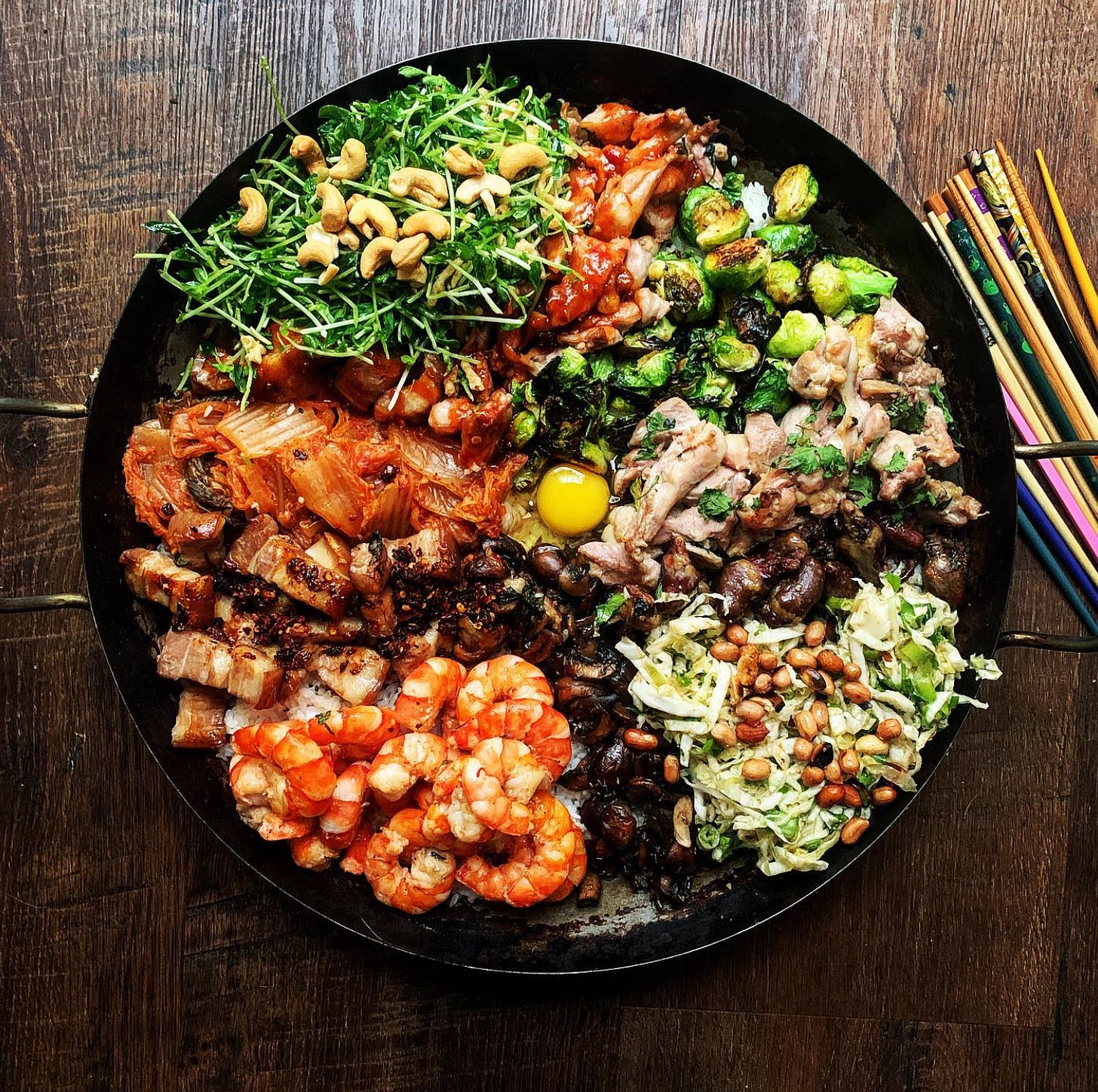
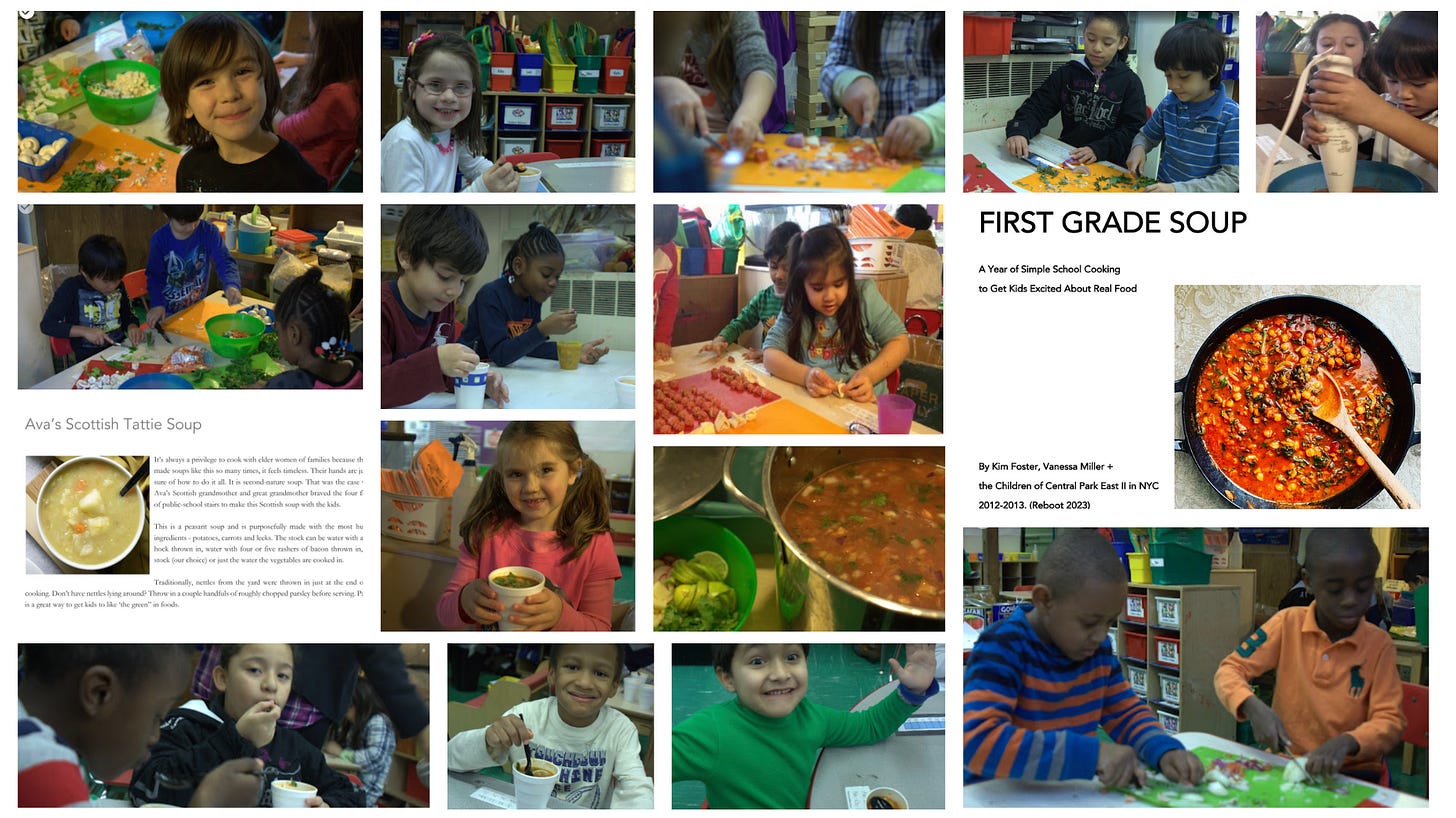
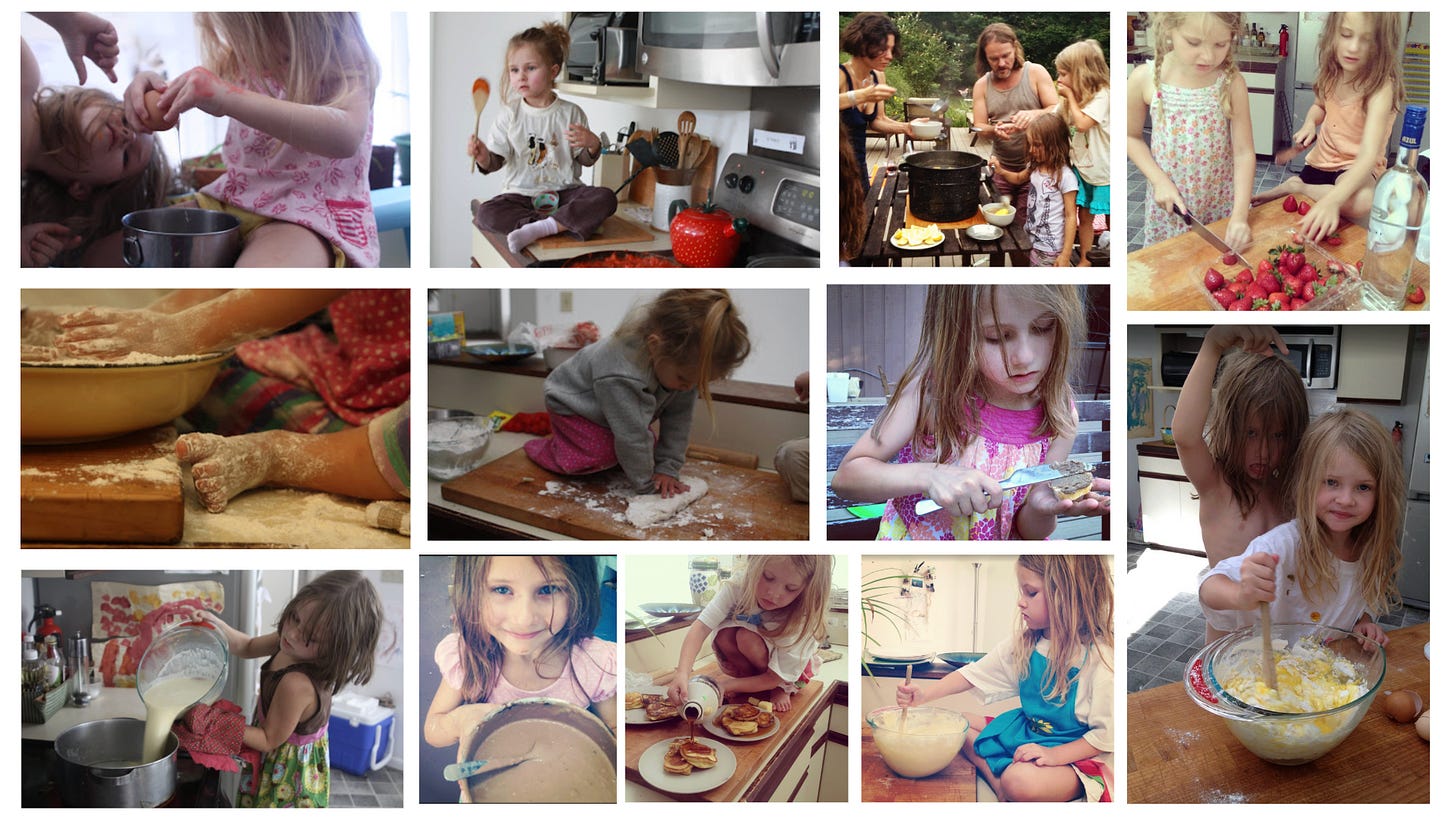
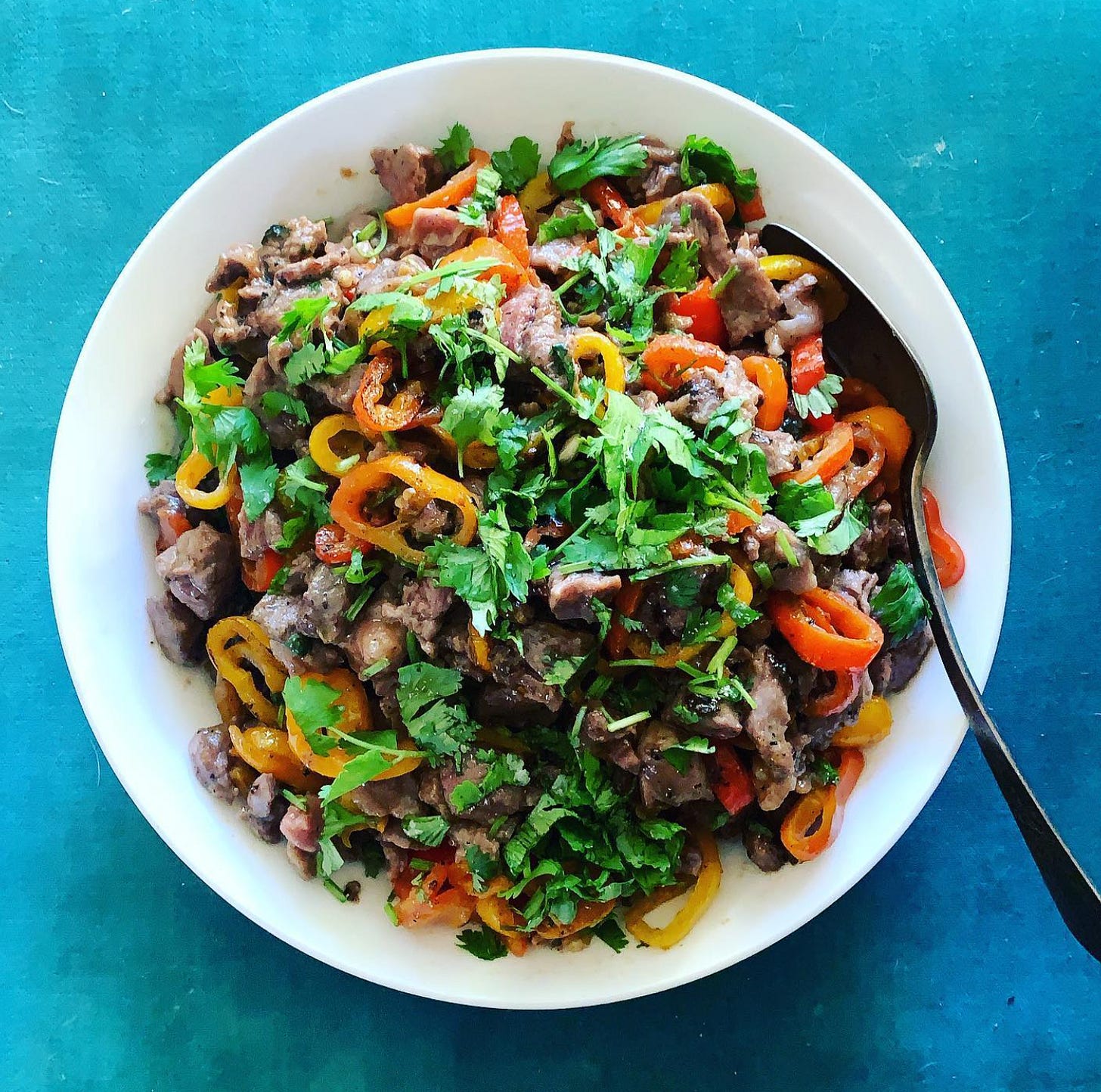
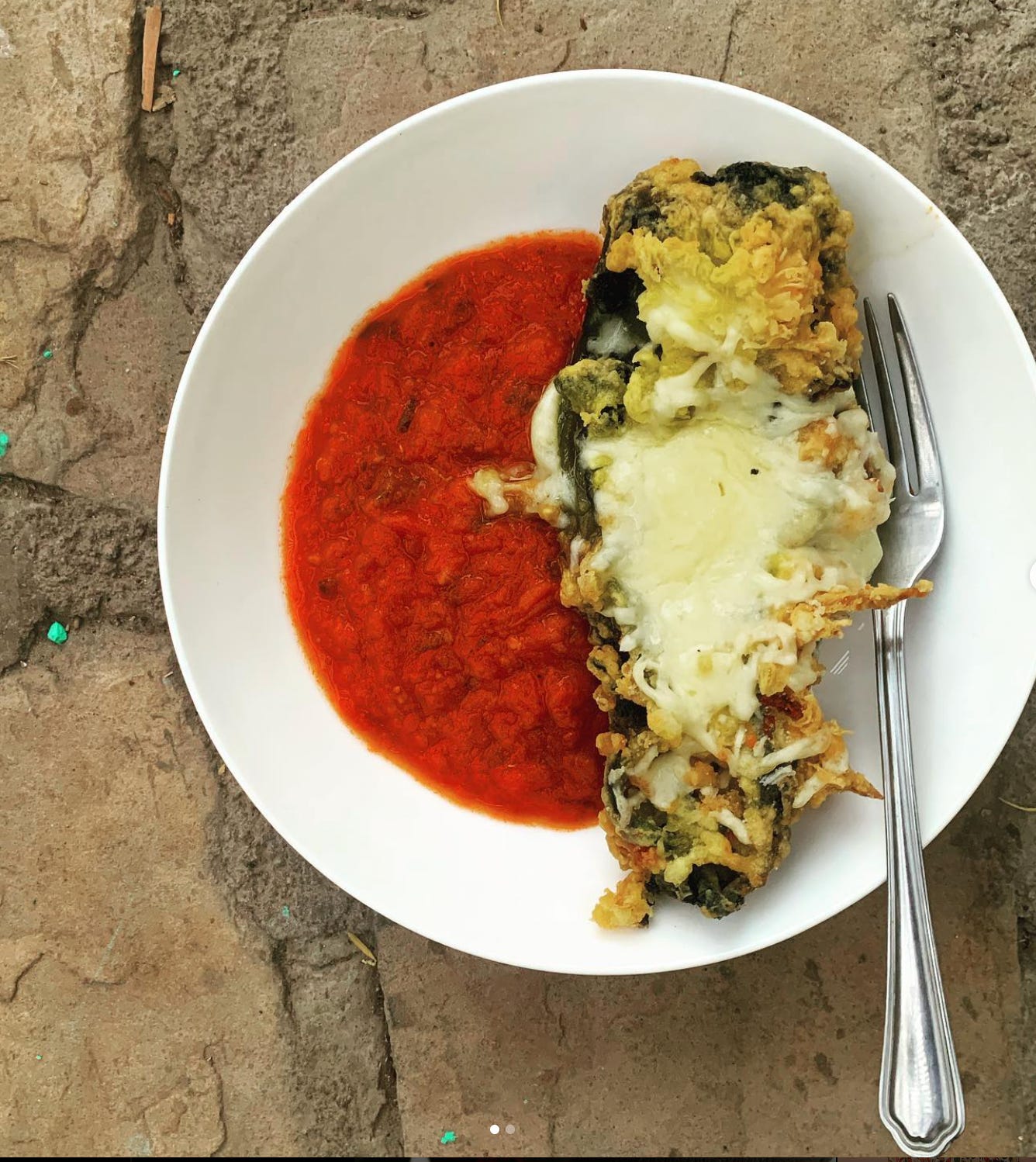
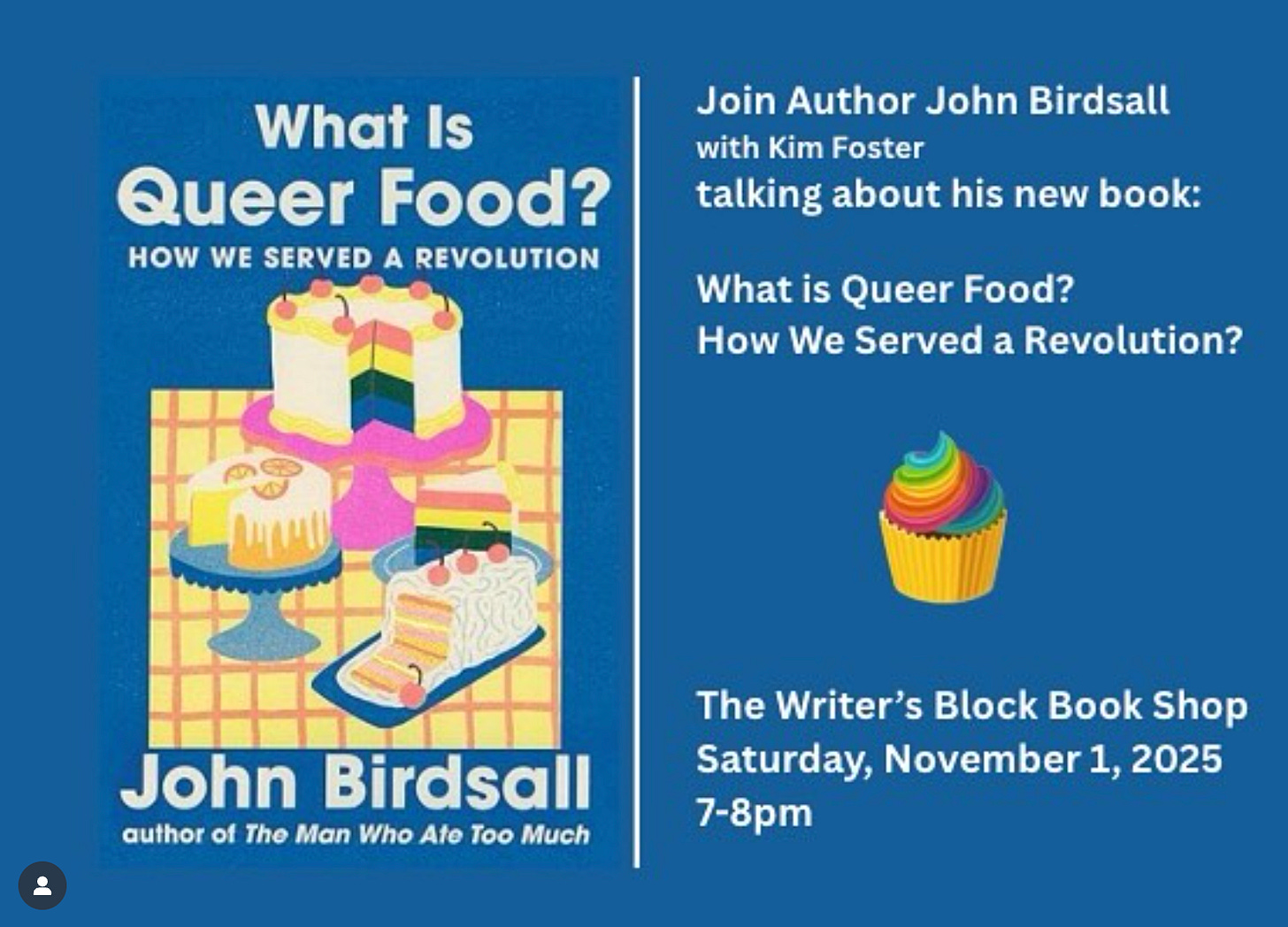

I can so relate to this column. I've felt misaligned recently. My husband and I have always shared a love of food: I cook well and widely: Mexican, French, Italian, Spanish, Chinese, Japanese, Thai, American comfort food. He has always enjoyed what I cook, and eating together was our primary source of mutual pleasure, one of the few interests we share, after being together for 55 years. He's into birdwatching, art, and watching sports on tv. Other than cooking, I write, sing, act, watch movies, and go to the theater, usually by myself. He started getting depressed about his body, back problems, etc. and became obsessed with the idea of using one of the new GLP drugs to lose weight. He's been on Zepbound for 6 months and has lost 35 pounds so far, and it isn't at all clear how long this will continue. Lots of miserable GI side effects, he's miserable but undeterred. Worst is his loss of interest in eating. He'll take two bites of dinner I've cooked--something he said he wanted me to make--and then after two bites, he'll say: "can't eat anymore of this." The unanticipated consequences of these new drugs aren't being talked about enough.
I love your realizations, your descriptions of the relationship struggles you went through with your daughter and how you resolved them, and I support you in your alignment! Now I want to try making a weekly meal for friends—but I think I'll have to make some more friends if I'm going to keep the supper gatherings going. Incentive! I love connecting authentically, personally, and improvisationallly probably as much as you love cooking and all its sensory experiences. Thanks!